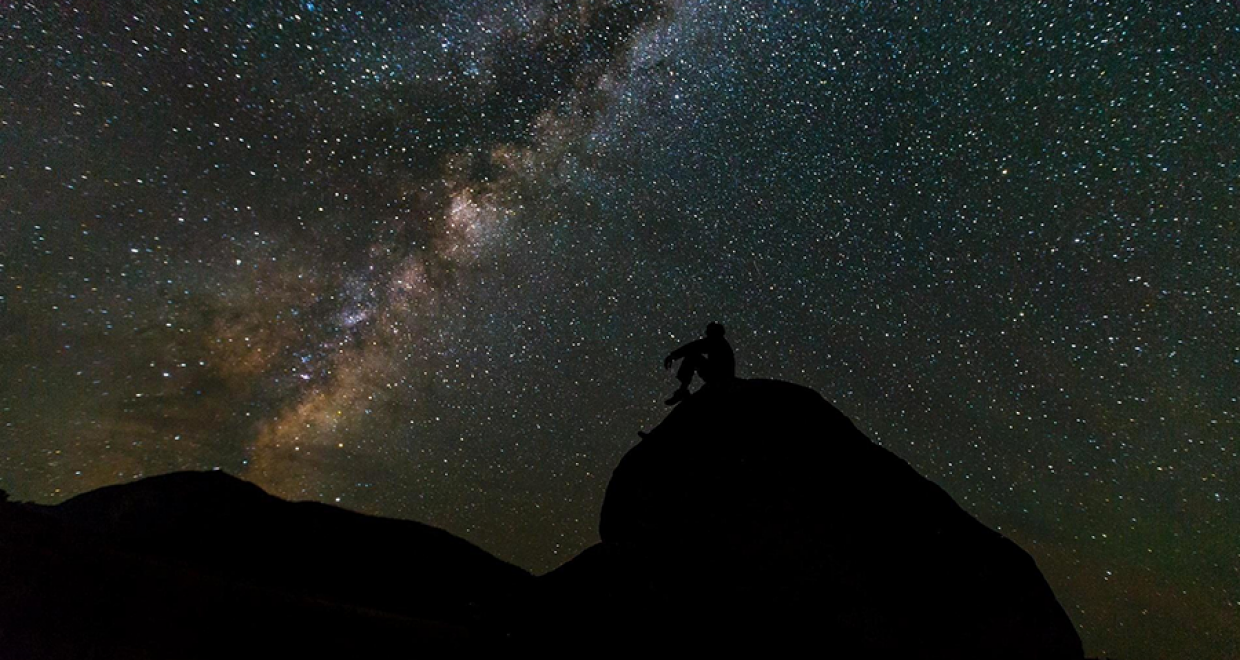Ever New and Increasing Awe

Ryan Gillespie, University of California, Los Angeles
From our perspective, life seems meaningful—and not just full of personally meaningful things, like having children or playing Bach perfectly. Most of us live our lives as if there is an answer to the callings of our deepest soul longings. We live as if what we do matters in some sort of cosmic way. Human life feels as though it has purpose and function and meaning.
Is that feeling deceptive, leading us to harbor illusions about fundamental questions like who we are, where we are from, what matters, and what is real? According to much modern scientific discourse, the answer is yes: life feels meaningful from our perspective, but that is because it is from a rather biased perspective—our own. From the perspective of the cosmos, it is not really so. Life is but a random, chance-rich occurrence in an unfolding impersonal, distant, cold, cosmological process.
But what is the perspective of the cosmos—the elusive sub specie aeternitatis—and how would we get it? Are all values and matters of worth reducible to power? What do we make of our (not few!) mathematical paradoxes and epistemological puzzles? And what of the curious nature of desire? Love, fame, money, sex, friendship, and other likely suspects reflect this curiosity, in that they both fulfill desires we might have and yet do not fulfill them. This has lead many throughout history to claim the super-natural (or non-natural): our desire must be for something outside of nature, since nothing in nature seems quite to fill it.
While defenders of either the chance-rich naturalism view or the supernatural view are plentiful, there is growing interest in a third kind of view, which I am calling religious non-theism. This view affirms the findings and assumptions of much scientific discourse but stops short of full-blown naturalism. It affirms the philosophical arguments of much moral and religious discourse but stops short of full-blown theism and other nontheistic religious reality claims. It is, potentially, either a philosophical bridge between them, or a third way. It is a fascinating, growing realm of rhetoric and reflection.
The centrality of awe and beauty is well-motivated and philosophically salient. In order for us to understand nature, and have relevant conceptions like reality, truth, and reason, it seems we would need something beyond nature. At one level, this is a rather respectable and adequate place to end this emerging grander story: in order for science to be true in the sense of truth proclaimed by many scientists, we need something outside of it by which to measure it. The ruler cannot measure itself. Intuitions about beauty seem to fit the bill nicely, and, given that this is a kind of beauty irreducible to the empirical, it makes sense to call this a religious view. I think fruitful inquiry, by scientists and humanists alike, by atheists and theists alike, can and ought to be conducted at this level.
Here’s the rub: holding this religious view of awe and intuitions of beauty, some might go in for theistic variations and others might go in for the more abstract Something-More variations. But the religious non-theist type under review rejects theism, particularly in Abrahamic variants, as unfounded. This seems mistaken. Given the philosophical motives and assumptions of religious non-theism, it either needs to allow for the possibility of theism and other nontheistic realities or, in rejecting them, to accept that it thus ends up itself unfounded and affirming the very naturalism it means to reject.
In other words, for all of our scientific and philosophical rigor, theology still proves hard to shake.






